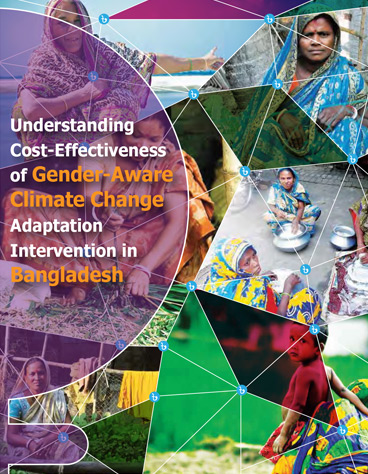
Understanding Cost-Effectiveness of Gender-Aware Climate Change Adaptation Intervention in Bangladesh

UN Women undertook the research to test if, along a spectrum of gender-aware design approaches, projects that adopt a more gender-transformative approach are also more cost-effective in achieving climate change adaptation outcomes. The focus of the study is not to provide conclusive evidence that gender transformative design is always more cost-effective but to explore how investing in gender aware programming affects the overall outcomes of climate change adaptation strategies.
The analysis, undertaken in partnership with three climate change adaptation projects, provides insights on how a gender-aware design contributed to the effectiveness and cost-effectiveness of the projects compared in this study with the purpose to understand how the findings can be used to influence future programming across agencies involved in climate change action. The study also provides insights on how to monitor and assess the implementation of gender strategies in practice so that gender responsive design is more likely to translate into real results for women, men and communities.
To the best of our knowledge, this is the first ever study to apply a cost-effectiveness methodology to investigate what difference an investment in gender-responsive programming can make to climate change adaptation planning and implementation.